SUMMARY
This is AI generated summarization, which may have errors. For context, always refer to the full article.
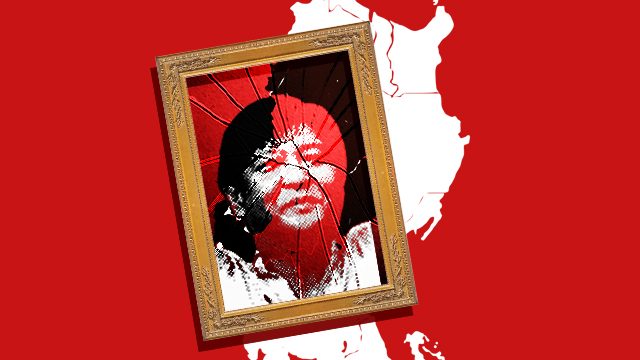
When Senator Imee Marcos candidly said in August last year that her brother “needs a job” because “he’s been hanging around jobless for the past six years,” that statement rang true, not only from 2016 (when Marcos Jr lost his bid for the vice presidency) and onwards but for many other years in his life.
Before that, based on Marcos Jr’s resumé, he was without a job for three years, from 1995 to 1997. He lost in the senatorial race in 1995 after serving one term in Congress. It was in 1998 when his political career picked up and he won as governor of Ilocos Norte.
Early on, after the Marcoses fled the country in 1986, Marcos Jr spent around five years in the US. These years in exile are blank, both in Hawaii and New York.
Marcos Jr said in an interview that he moved to New York in 1989 when his mother, Imelda, was to face trial for racketeering and fraud. It is unclear what else he did in New York, apart from attending his mother’s court hearings. He returned to the Philippines in 1991 and won a seat in Congress in the 1992 elections.
If you add it all up, that’s a total of about 14 years spent “hanging around jobless.” It appears that Marcos Jr never worked in the private sector or in an NGO and was not known to run a business. The unanswered question is: When not in public office, what did he do?
His first work experience, if we can call it that, was as assistant to his father. In November 1978, the dictator swore in his son, then 21, as special assistant to the President, researchers from the University of the Philippines (UP) wrote in Vera Files. This was after Marcos Jr received his special diploma from Oxford. Malacañang also announced that Bongbong took a six-month basic officer’s course at the Philippine Marine Training Center after which he was commissioned as a second lieutenant in the Philippine Constabulary.
Absentee vice governor, governor
Politics was his next stop. Marcos Jr’s first elected post was as vice governor of Ilocos Norte in 1980, not 1981 as his resumé claims. He was 22 years old and he ran unopposed.
He held the post while he was still studying in Wharton. In fact, he was sworn into office at the Philippine Embassy in Washington D.C. in February 1980, the UP researchers found out.
Marcos Jr was an absentee vice governor for more than a year and, while in the US, he was also reported to be an “attaché to the Philippine delegation to the United Nations.” But even when he returned to the Philippines in late 1981, after the fall term in Wharton, he barely showed up in Laoag, Ilocos Norte.
He took over as governor in March 1983 after his aunt, Elizabeth Keon, resigned due to ill health and held on to the post until the Marcoses were ousted from Malacañang in February 1986.
Marcos Jr became governor again in the post-EDSA years, from 1998 to 2007. Our reporter, Lian Buan, recently traveled to Ilocos Norte and reported that, like in the past, Marcos Jr was an absentee provincial chief executive.
Crony company: Chairman of the board
Apart from being governor, Marcos Jr was also chairman of the board of the Philippine Communications Satellite Corp. or Philcomsat. His father ensconced him there in early 1985; he was only 27 years old. UPI reported in 1986 that “he had been drawing a monthly salary of between $9,700 and $97,000 but rarely visited the office and apparently had no duties there.”
In the book, “The Marcos Dynasty,” Sterling Seagrave wrote that the chairmanship of Philcomsat was meant “to enhance Bongbong’s prestige as heir apparent.” But he was also found to be “ liberal in using its money. During the last three months of the Marcos regime, he withdrew $500,000 in corporate funds.”
Philcomsat was part of a telecommunications empire used by President Marcos “to channel a steady flow of ‘crony’ wealth out of the country,” the UPI reported. This empire controlled the backbone of the country’s communications industry.
“Investigators have found the firms funneled millions of dollars out of the country in a ‘steady flow,’ and sources estimated that in 10 to 15 years the amount totaled ‘tens of millions of dollars,’” UPI reported in 1986. “They said it appeared some of the money was stashed in tax havens and blind trusts unrelated to official company business.”
Fast forward to today. In a recent interview, Marcos Jr gave a revealing answer when asked why he joined politics soon after his return from exile in 1991. “For the survival of the family…” he quickly replied.
It appears that what drove him, while in public office, was to protect the family’s stolen wealth. He has been leading the defense in court cases versus his family’s ill-gotten riches. Should he win as president, he would be in the best place to protect all that the family has illegally amassed from the country.
Add a comment
How does this make you feel?
![[WATCH] In The Public Square with John Nery: Preloaded elections?](https://www.rappler.com/tachyon/2023/04/In-the-Public-Square-LS-SQ.jpg?resize=257%2C257&crop=414px%2C0px%2C1080px%2C1080px)
![[Newspoint] 19 million reasons](https://www.rappler.com/tachyon/2022/12/Newspoint-19-million-reasons-December-31-2022.jpg?resize=257%2C257&crop=181px%2C0px%2C900px%2C900px)

![[OPINION] The long revolution: Voices from the ground](https://www.rappler.com/tachyon/2022/06/Long-revolution-June-30-2022.jpg?resize=257%2C257&crop=239px%2C0px%2C720px%2C720px)
![[OPINION] I was called a ‘terrorist supporter’ while observing the Philippine elections](https://www.rappler.com/tachyon/2022/06/RT-poster-blurred.jpeg?resize=257%2C257&crop_strategy=attention)




![[New School] Tama na kayo](https://www.rappler.com/tachyon/2024/02/new-school-tama-na-kayo-feb-6-2024.jpg?resize=257%2C257&crop=290px%2C0px%2C720px%2C720px)
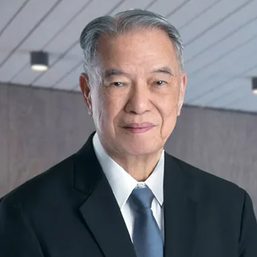
![[Newspoint] What, me worry?](https://www.rappler.com/tachyon/2022/09/what-me-worry-september-23-2022.jpg?resize=257%2C257&crop_strategy=attention)
![[Newspoint] Cronyism in the second coming](https://www.rappler.com/tachyon/2022/07/tl-cronyism-in-the-making-July-15-2022.jpg?resize=257%2C257&crop=245px%2C0px%2C720px%2C720px)
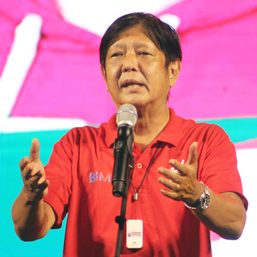

![[Rappler’s Best] Fasten seatbelt, Mr. President](https://www.rappler.com/tachyon/2024/07/fasten-seatbelt-mr-president-edit.jpg?resize=257%2C257&crop=235px%2C0px%2C720px%2C720px)

![[OPINION] Power of mimicry: How human rights are covertly undermined in PH](https://www.rappler.com/tachyon/2024/06/duterte-marcos-human-rights.jpg?resize=257%2C257&crop_strategy=attention)
![[Vantage Point] BBM Year 2: Hits and misses](https://www.rappler.com/tachyon/2024/06/thought-leaders-marcos-hits-and-misses.jpg?resize=257%2C257&crop=277px%2C0px%2C720px%2C720px)
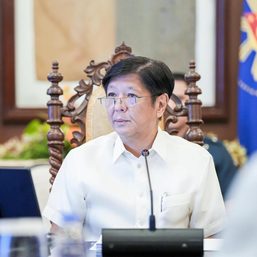
![[WATCH] #TheLeaderIWant: Filipino voters sound off on community issues a year before 2025 elections](https://www.rappler.com/tachyon/2024/05/filipino-voters-sound-off-on-community-issues-1.jpg?resize=257%2C257&crop=276px%2C0px%2C720px%2C720px)





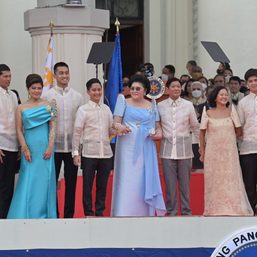

![[WATCH] In the Public Square with John Nery: The Marcoses’ three-body problem](https://www.rappler.com/tachyon/2024/04/pubsq-sq.jpg?resize=257%2C257&crop=390px%2C0px%2C1080px%2C1080px)
![[Newsstand] The Marcoses’ three-body problem](https://www.rappler.com/tachyon/2024/04/tl-marcoses-3-body-problem.jpg?resize=257%2C257&crop=451px%2C0px%2C1080px%2C1080px)
![[EDITORIAL] Kalaban mo ang mga senador na protektor ni Quiboloy](https://www.rappler.com/tachyon/2024/03/animated-quiboloy-kojc-senate-carousel.jpg?resize=257%2C257&crop=365px%2C0px%2C720px%2C720px)
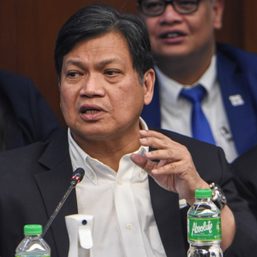


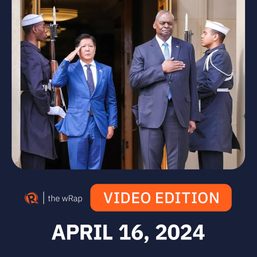
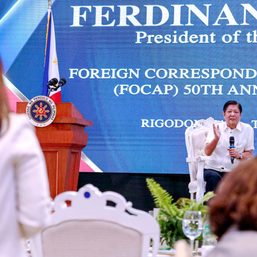
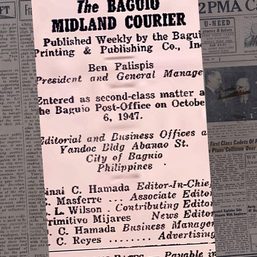
![[OPINION] Raised on radio](https://www.rappler.com/tachyon/2024/04/raised-on-radio.jpg?resize=257%2C257&crop=396px%2C0px%2C720px%2C720px)
![[Just Saying] Marcos: A flat response, a missed opportunity](https://www.rappler.com/tachyon/2024/04/tl-marcos-flat-response-april-16-2024.jpg?resize=257%2C257&crop=277px%2C0px%2C720px%2C720px)
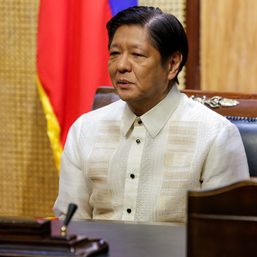

There are no comments yet. Add your comment to start the conversation.